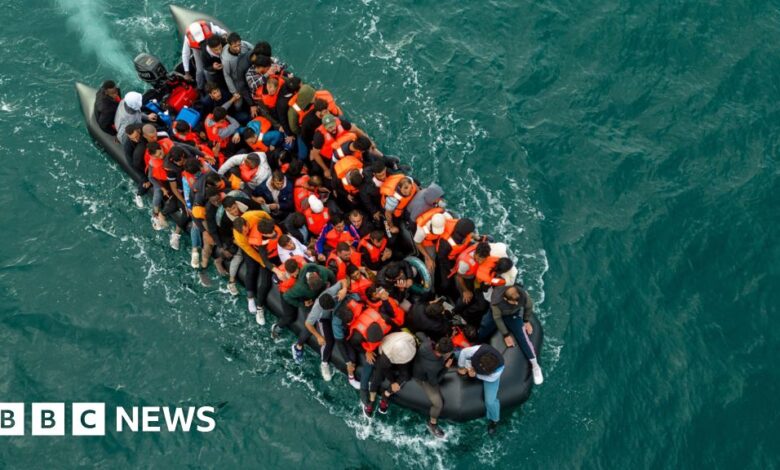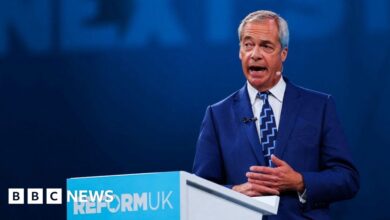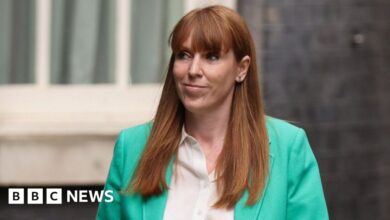People smugglers to see finances targeted by UK

New sanctions targeting the finances of people smuggling networks will make it harder for gangs to profit from the deadly trade, the Home Office has said.
Foreign Secretary David Lammy told the BBC that would involve freezing the bank accounts and assets of “those that help to get people into this country” illegally, as well as travel bans.
The government has said the proposed measures aimed at curbing illegal migration into the UK are expected to come into force this year.
He announced the measures in a wide-ranging speech on Thursday that outlined UK foreign policy priorities, saying the post-Cold War era of peace is “over” and Europe’s future security is “on a knife edge”.
“We have to accept that there is no going back, we must stop the 1990s clouding our vision,” Lammy said.
He said that sanctions, designed to disrupt the flow of money, could be imposed on companies and individuals aiding illegal migration, including those that manufacture materials for small boat crossings.
Officials admit they do not know how many people smugglers may be targeted or how many assets, if any, they have in UK banks.
The announcement on people smuggling is the start of the process and much remains unclear. Sanctions are highly technical and legal and the new regime will take many months to be drawn up.
In his speech, Lammy said the Foreign and Commonwealth Office (FCDO) was “critical” to tackling irregular migration.
“A realistic strategy involves transactional, hardheaded diplomacy, and to agree with partners, smart interventions at every stage along the international people smuggling pathway,” he added.
Lammy said the sanctions aimed to “prevent, combat, deter and disrupt” people smuggling into the UK.
Under the proposed measures, which are yet to be finalised, UK-based individuals and financial institutions would be banned by law from dealing with sanctioned groups.
The government will bring forward new legislation for the scheme, drawn up by government sanction experts alongside law enforcement and Home Office staff.
Many smugglers operate in an informal cash-based network, making it hard for the authorities to target their assets.
It could be easier to sanction the supply chains helping the people smugglers, and the middle men joining up the networks and helping to move asylum seekers across Europe to northern France.
Speaking on BBC Radio 4’s Today programme ahead of his speech, Lammy said: “When we look at the manufacture, the storage, the transportation of many of those boats… there are companies that sit behind that, often in other nations”.
“We know who those companies are, we can go after those value chains and supply chains,” he added.
Prime Minister Sir Keir Starmer said the move would deprive the gangs of the “illicit finance fuelling their operations”.
In an article for the Daily Mail, the prime minister said the gangs “only care about one thing: money” and he promised to “hit them where it hurts”.
The government said the sanctions are the world’s first to specifically target people smugglers.
In 2024, the number of people detected crossing the English Channel in small boats was up by a quarter, from 29,437 in 2023 to 36,816.
However, this was lower than the record 45,755 seen in 2022.
Under enhanced powers to tackle people smuggling announced in November, the UK’s Border Security Command was given permission to freeze smuggling networks’ bank accounts.
Lammy said his department would work closely with the Home Office to use “every tool at our disposal to restore control to our borders”.
Ministers announced new laws allowing travel bans, social media blackouts and phone restrictions for suspected people smugglers earlier this month.
Shadow foreign secretary Dame Priti Patel said Labour had “no credibility on dealing with the evil trade in people smuggling”.
“In Parliament they voted against tougher punishments and life sentences for people smugglers, abolished the Rwanda deterrent and campaigned in favour of the rights of dangerous criminals and foreign national offenders, over the safety of the British people.”




